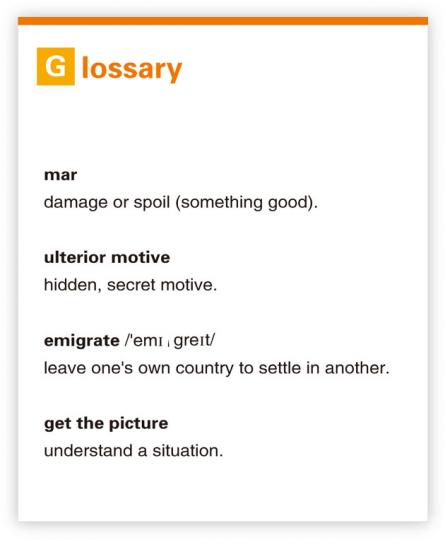新聞類別
副刊
詳情#
【明報專訊】THERE have been serious allegations of vote rigging. It is clear that vote rigging has marred the electoral system and raised serious doubts that elections may not be fair or just. ICAC (Independent Commission Against Corruption) and police officers have arrested a number of people on suspicion of vote rigging. That demonstrates the government's determination to crack down on the offence.
Vote rigging poisons elections. In response, Secretary for Constitutional and Mainland Affairs Raymond Tam has said that, next month, the government will put forward proposals for improving the voter registration system. For example, citizens may be required to produce proof of main residence when they register as voters. Furthermore, the government will propose that the authorities investigate not only cases where more than a certain number of registered voters live in the same place but also those where registered voters who live in the same flat have more surnames than the members of a family normally have. It will also proposed that more checks be made, they be made more frequently, and more be done to educate the public. It would help plug loopholes in the voter registration system to take those measures. However, we believe the government should look farther. It ought to realise the composition of the permanent residents of Hong Kong is complex. It should formulate practicable measures to ensure that there is no loophole people with ulterior motives may exploit.
(1) Several hundred thousand Hong Kong citizens have emigrated. They are permanent Hong Kong residents. Few such "foreign Hong Kongers" have permanent addresses here. They may use their relatives' as their contact addresses. Being permanent residents, they have the right to vote. There are about 3.2 million registered voters in Hong Kong. How many of them are "foreign Hong Kongers"? The government should consider if it is necessary to differentiate them. The purpose of doing so is not to deprive them of their right to vote. The government should get the picture so that it may promptly detect any attempt to use them to influence election outcomes.
(2) More and more Hong Kong people have settled on the mainland. Some work there; others live there in retirement. Those "mainland Hong Kongers" have the right to vote. They may return en masse to Hong Kong to cast their votes on polling day. The effect that may have on election outcomes should not be ignored. They may do so of their own accord or have been told to do so. This aspect is worth looking at.
(3) It has been the case since a few years ago that more than 30,000 women who are not Hong Kongers and whose husbands are not Hong Kongers give birth here. Their children born here are permanent Hong Kong residents. Unless there are policy changes, in ten-odd years, about 30,000 "Hong Kongers born of mainland parents" will become voters a year. The number would reach 300,000 in a decade.
There are large numbers of "foreign Hong Kongers", "mainland Hong Kongers" and "Hong Kongers born of mainland parents". Hong Kong's voter registration system is not tight, and the Registration and Electoral Office is slack in investigation. Irregularities have been reported though those involved in known suspected vote rigging cases all live in the territory. It is necessary to consider whether attempts can be made to mobilise Hong Kongers in the three categories mentioned above with a view to influencing election outcomes. If such attempts can be made, elections may not be open, fair or honest. The government should study this problem and consider what precautions it should take.
明報社評 2011.12.08﹕三類永久居民不居港 會否衍生登記選舉漏洞?
「種票」投訴的嚴重性,證明情况已衝擊着選舉制度,使人質疑選舉是否公平公正。廉政公署和警方先後拘控嫌疑者,顯示政府嚴肅對付懷疑種票行為的決心。
因應種票毒化選舉的做法,政制及內地事務局長譚志源表示,下月會提出建議,優化選民登記制度,包括新選民登記時,可能要提交主要居所證明;第二是不但要抽查同一地址有超過某個數目的選民登記,亦考慮抽查一些出現較多不同的姓氏,超越一般正常家庭組合的個案,並加強抽查的次數和密度;最後是加強公眾宣傳和教育。這3方面做法,就堵塞現行選民登記漏洞,或許可以起到一定作用,不過,我們認為,政府應該把目光放開、放遠一點,認識到香港永久居民組成的複雜情况,研議可行做法,以確保不會成為別有用心者鑽空子的漏洞。
首先,歷來已有數以十萬計港人,移民外國,而他們仍然擁有香港永久居民身分。這些「外國港人」,大多在港無固定居所,或許以個別親友住址作為聯絡通訊之用,不過,基於他們的永久居民資格,仍有投票權利。事實上,選民總登記人數約320萬,「外國港人」究竟佔多少?政府要研議是否應該區別出來,此舉目的並非要褫奪他們的選舉投票權利,而是要政府掌握情况,有一個譜,若有人想利用他們來左右選舉結果,政府或許可以及時發覺。
其次,近年,港人移居內地漸多,包括工作和長者安老等,這些「內地港人」都有投票權利,若到選舉之時,他們大批回港投票,對選舉結果的影響,不容忽視。而他們回港投票,是主動抑或被組織安排等,都值得關注。
第三,近年夫婦均非港人的內地孕婦來港分娩,每年超過3萬名,所誕下嬰兒都有永久居民身分,設若政策不變,這類「父母是內地人的港人」,10多年之後,每年都有約3萬人成為選民,以10年計,就有超過約30萬名。
「外國港人」、「內地港人」、「父母是內地人的港人」數目龐大,而本港選民登記不嚴,選舉處查察不力,以目前已知懷疑種票個案,涉案者都在本港居住,仍然出現流弊,則上述3類港人,會否引來其他選民登記漏洞,最終導致選舉結果扭曲,損害選舉的廉潔公平公正原則,值得政府研議,採取措施未雨綢繆。
Glossary
mar﹕damage or spoil (something good).
ulterior motive﹕hidden, secret motive.
emigrate﹕leave one's own country to settle in another.
get the picture﹕understand a situation.
網上聲檔: english.mingpao.com/critic.htm
Vote rigging poisons elections. In response, Secretary for Constitutional and Mainland Affairs Raymond Tam has said that, next month, the government will put forward proposals for improving the voter registration system. For example, citizens may be required to produce proof of main residence when they register as voters. Furthermore, the government will propose that the authorities investigate not only cases where more than a certain number of registered voters live in the same place but also those where registered voters who live in the same flat have more surnames than the members of a family normally have. It will also proposed that more checks be made, they be made more frequently, and more be done to educate the public. It would help plug loopholes in the voter registration system to take those measures. However, we believe the government should look farther. It ought to realise the composition of the permanent residents of Hong Kong is complex. It should formulate practicable measures to ensure that there is no loophole people with ulterior motives may exploit.
(1) Several hundred thousand Hong Kong citizens have emigrated. They are permanent Hong Kong residents. Few such "foreign Hong Kongers" have permanent addresses here. They may use their relatives' as their contact addresses. Being permanent residents, they have the right to vote. There are about 3.2 million registered voters in Hong Kong. How many of them are "foreign Hong Kongers"? The government should consider if it is necessary to differentiate them. The purpose of doing so is not to deprive them of their right to vote. The government should get the picture so that it may promptly detect any attempt to use them to influence election outcomes.
(2) More and more Hong Kong people have settled on the mainland. Some work there; others live there in retirement. Those "mainland Hong Kongers" have the right to vote. They may return en masse to Hong Kong to cast their votes on polling day. The effect that may have on election outcomes should not be ignored. They may do so of their own accord or have been told to do so. This aspect is worth looking at.
(3) It has been the case since a few years ago that more than 30,000 women who are not Hong Kongers and whose husbands are not Hong Kongers give birth here. Their children born here are permanent Hong Kong residents. Unless there are policy changes, in ten-odd years, about 30,000 "Hong Kongers born of mainland parents" will become voters a year. The number would reach 300,000 in a decade.
There are large numbers of "foreign Hong Kongers", "mainland Hong Kongers" and "Hong Kongers born of mainland parents". Hong Kong's voter registration system is not tight, and the Registration and Electoral Office is slack in investigation. Irregularities have been reported though those involved in known suspected vote rigging cases all live in the territory. It is necessary to consider whether attempts can be made to mobilise Hong Kongers in the three categories mentioned above with a view to influencing election outcomes. If such attempts can be made, elections may not be open, fair or honest. The government should study this problem and consider what precautions it should take.
明報社評 2011.12.08﹕三類永久居民不居港 會否衍生登記選舉漏洞?
「種票」投訴的嚴重性,證明情况已衝擊着選舉制度,使人質疑選舉是否公平公正。廉政公署和警方先後拘控嫌疑者,顯示政府嚴肅對付懷疑種票行為的決心。
因應種票毒化選舉的做法,政制及內地事務局長譚志源表示,下月會提出建議,優化選民登記制度,包括新選民登記時,可能要提交主要居所證明;第二是不但要抽查同一地址有超過某個數目的選民登記,亦考慮抽查一些出現較多不同的姓氏,超越一般正常家庭組合的個案,並加強抽查的次數和密度;最後是加強公眾宣傳和教育。這3方面做法,就堵塞現行選民登記漏洞,或許可以起到一定作用,不過,我們認為,政府應該把目光放開、放遠一點,認識到香港永久居民組成的複雜情况,研議可行做法,以確保不會成為別有用心者鑽空子的漏洞。
首先,歷來已有數以十萬計港人,移民外國,而他們仍然擁有香港永久居民身分。這些「外國港人」,大多在港無固定居所,或許以個別親友住址作為聯絡通訊之用,不過,基於他們的永久居民資格,仍有投票權利。事實上,選民總登記人數約320萬,「外國港人」究竟佔多少?政府要研議是否應該區別出來,此舉目的並非要褫奪他們的選舉投票權利,而是要政府掌握情况,有一個譜,若有人想利用他們來左右選舉結果,政府或許可以及時發覺。
其次,近年,港人移居內地漸多,包括工作和長者安老等,這些「內地港人」都有投票權利,若到選舉之時,他們大批回港投票,對選舉結果的影響,不容忽視。而他們回港投票,是主動抑或被組織安排等,都值得關注。
第三,近年夫婦均非港人的內地孕婦來港分娩,每年超過3萬名,所誕下嬰兒都有永久居民身分,設若政策不變,這類「父母是內地人的港人」,10多年之後,每年都有約3萬人成為選民,以10年計,就有超過約30萬名。
「外國港人」、「內地港人」、「父母是內地人的港人」數目龐大,而本港選民登記不嚴,選舉處查察不力,以目前已知懷疑種票個案,涉案者都在本港居住,仍然出現流弊,則上述3類港人,會否引來其他選民登記漏洞,最終導致選舉結果扭曲,損害選舉的廉潔公平公正原則,值得政府研議,採取措施未雨綢繆。
Glossary
mar﹕damage or spoil (something good).
ulterior motive﹕hidden, secret motive.
emigrate﹕leave one's own country to settle in another.
get the picture﹕understand a situation.
網上聲檔: english.mingpao.com/critic.htm
回應 (0)








